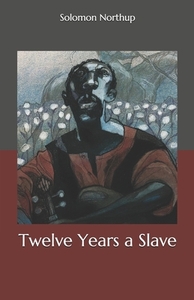Take a photo of a barcode or cover
challenging
dark
emotional
informative
reflective
sad
tense
fast-paced
Four and a half stars to this account of a man born free, married with three children, who was kidnapped and sold into slavery. An important story of the evils of slavery regardless of the kindness or cruelty of the master.
informative
reflective
sad
medium-paced
Startlingly relevant, and an incredible story. His observations of human nature and responses are fascinating. I've heard great things about the film version and am interested to see it but doubt it will do justice to the first hand written about of Northup's experience.
dark
emotional
informative
sad
fast-paced
dark
emotional
informative
inspiring
reflective
tense
fast-paced
dark
emotional
sad
tense
medium-paced
Fantastic book!! I loved everything about it. When I first started reading it, I didn't know if I would be able to get used to the writing style (it was published in the 1800's) but it was easy to get into. I then found out it was a movie and watched it and the movie was TERRIBLE. If I had watched the movie first, I wouldn't have read the book so I'm happy that I read it first.
dark
emotional
sad
medium-paced
Graphic: Physical abuse, Racial slurs, Racism, Slavery, Violence, Trafficking
Moderate: Rape
Disclaimer: Picked up free via kindle. Reading group guide version.
Many times in American schools when it comes to discussing slavery and literature, the only two authors that are mentioned are Frederick Douglas and Harriet Breecher Stowe. Sometimes Booker T. Washington might be mentioned.
It’s a shame that this narrative is not more widely used in schools. Hopefully, the movie will change this.
Northup’s brief narrative of his years of slavery, a result of being sold even though he was born free, is compelling not so much for his writing style, but because he doesn’t hold back, at least not in the ways that one would think. The dangers and harshness that women slaves faced is actually dealt with rather well. This occurs in the story of three women – a mother, her daughter, and Patsy – a slave out the plantation of Epps. Northup conveys exactly what is going to happen to the daughter, Emily – her being sold as a concubine, the fate of her mother, and the situation of Patsy – raped (Northup uses the term lust on the behalf of Epps) by her master and abused by her mistress. Considering the time when Northup is writing his descriptions of these dynamics are rather blunt.
It is true that some debate surrounds his use of Ford (portrayed as a “kind” master), and even with masters that are not as satanic as Epps, Northup never lets the reader forget that owning is just simply wrong, regardless of the type of master. Because of Northup’s kidnapping, the narrative also shows that slavery did not just effect those in the South, but those free, born free even, in the North who were at risk of illegally losing their freedom.
The book contains a discussion of various methods used in planting and harvesting as well as the life of a slave. Every American should read this, considering it’s available for ereaders for free.
Crossposted at Booklikes.
Many times in American schools when it comes to discussing slavery and literature, the only two authors that are mentioned are Frederick Douglas and Harriet Breecher Stowe. Sometimes Booker T. Washington might be mentioned.
It’s a shame that this narrative is not more widely used in schools. Hopefully, the movie will change this.
Northup’s brief narrative of his years of slavery, a result of being sold even though he was born free, is compelling not so much for his writing style, but because he doesn’t hold back, at least not in the ways that one would think. The dangers and harshness that women slaves faced is actually dealt with rather well. This occurs in the story of three women – a mother, her daughter, and Patsy – a slave out the plantation of Epps. Northup conveys exactly what is going to happen to the daughter, Emily – her being sold as a concubine, the fate of her mother, and the situation of Patsy – raped (Northup uses the term lust on the behalf of Epps) by her master and abused by her mistress. Considering the time when Northup is writing his descriptions of these dynamics are rather blunt.
It is true that some debate surrounds his use of Ford (portrayed as a “kind” master), and even with masters that are not as satanic as Epps, Northup never lets the reader forget that owning is just simply wrong, regardless of the type of master. Because of Northup’s kidnapping, the narrative also shows that slavery did not just effect those in the South, but those free, born free even, in the North who were at risk of illegally losing their freedom.
The book contains a discussion of various methods used in planting and harvesting as well as the life of a slave. Every American should read this, considering it’s available for ereaders for free.
Crossposted at Booklikes.



